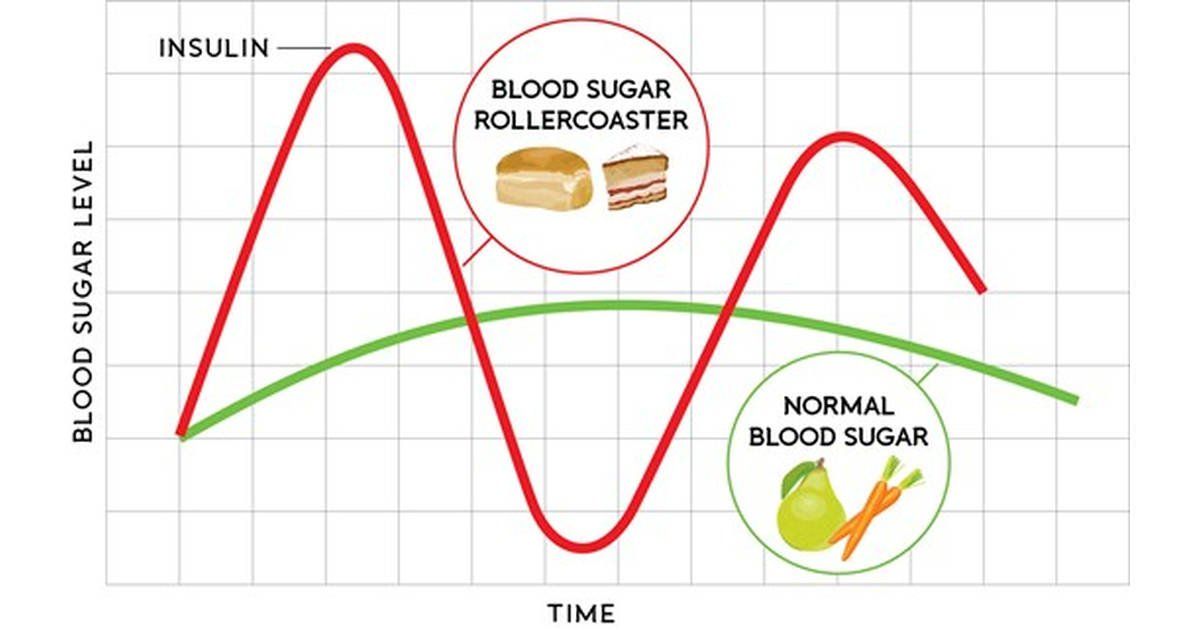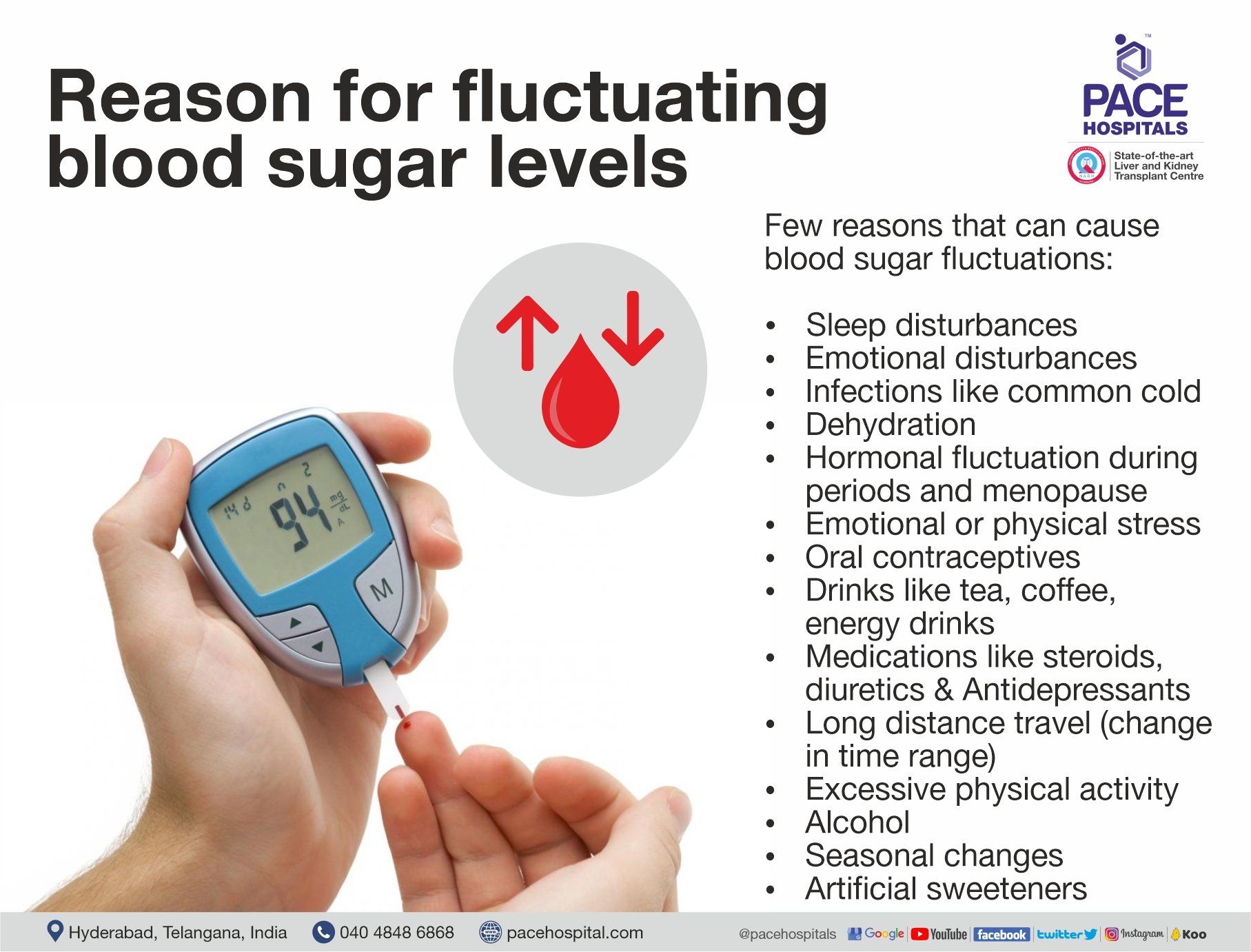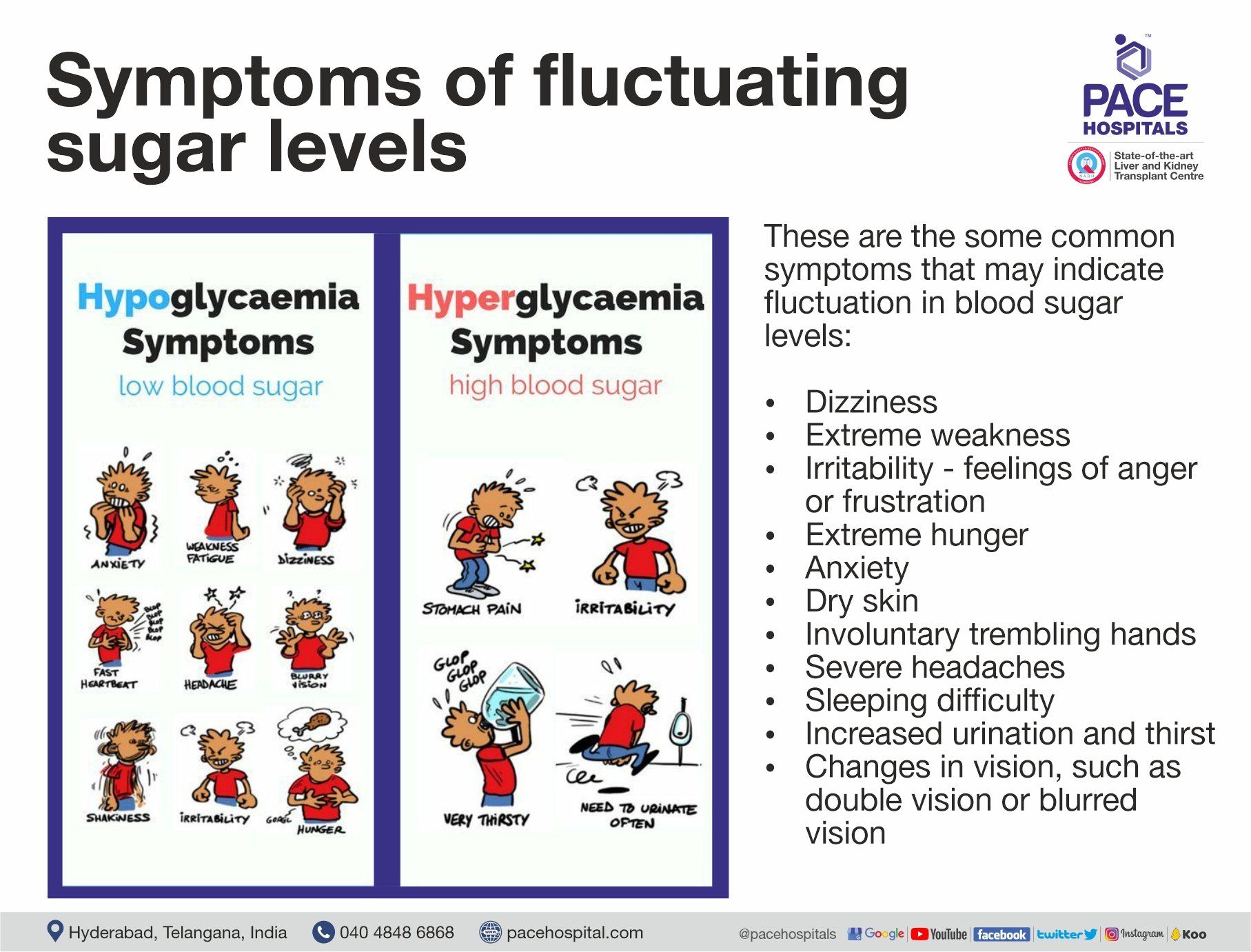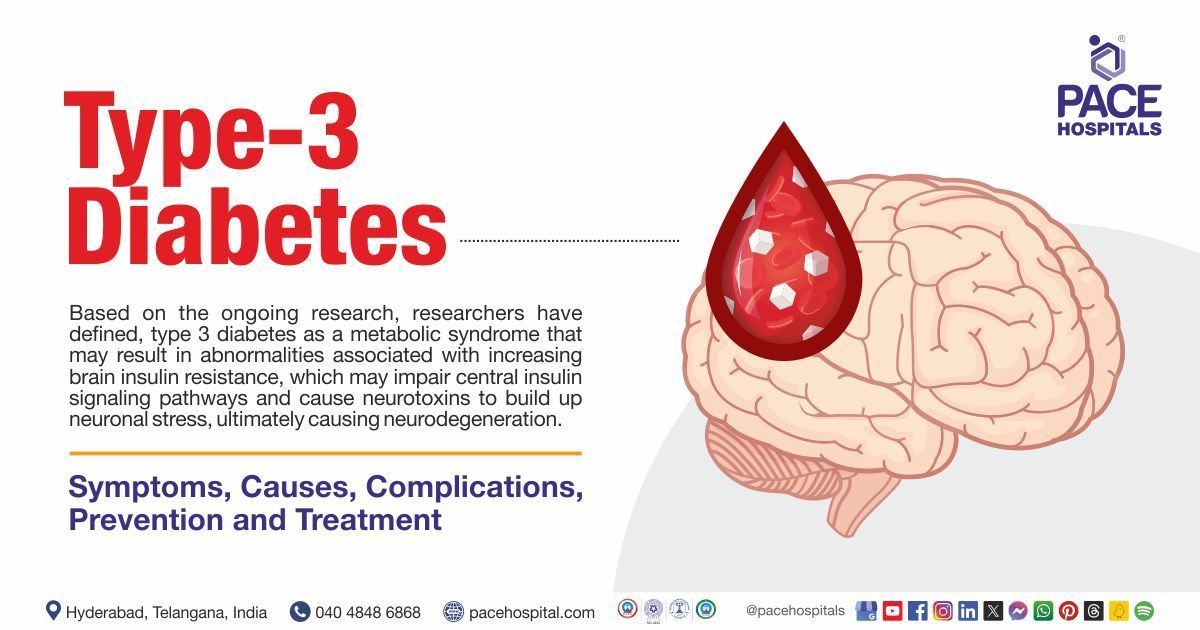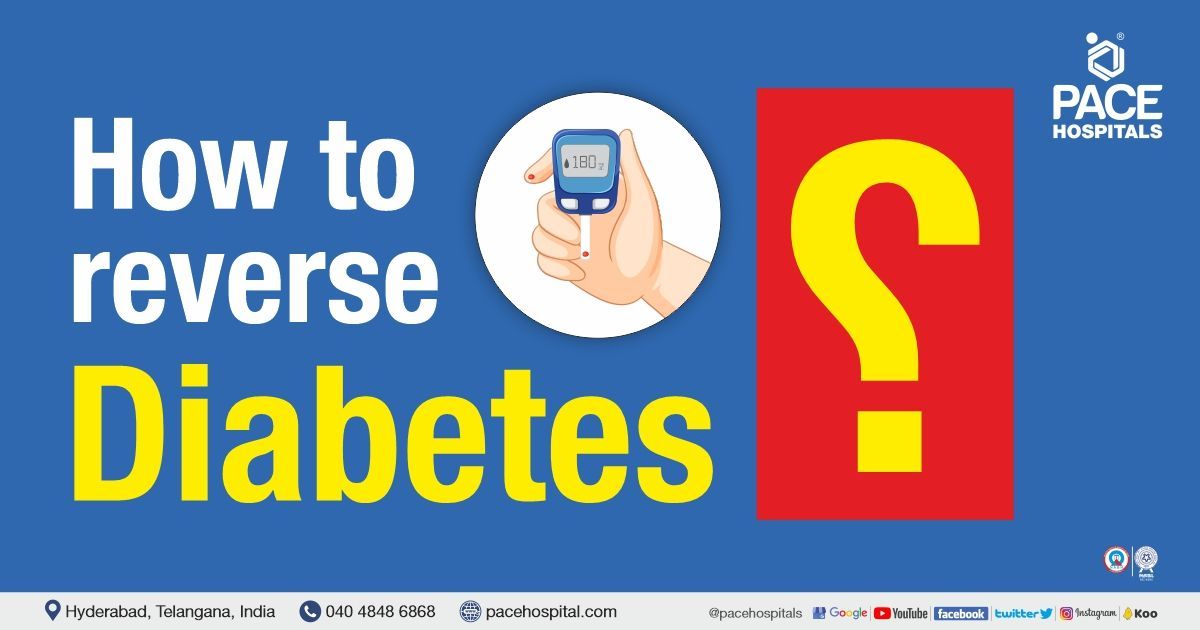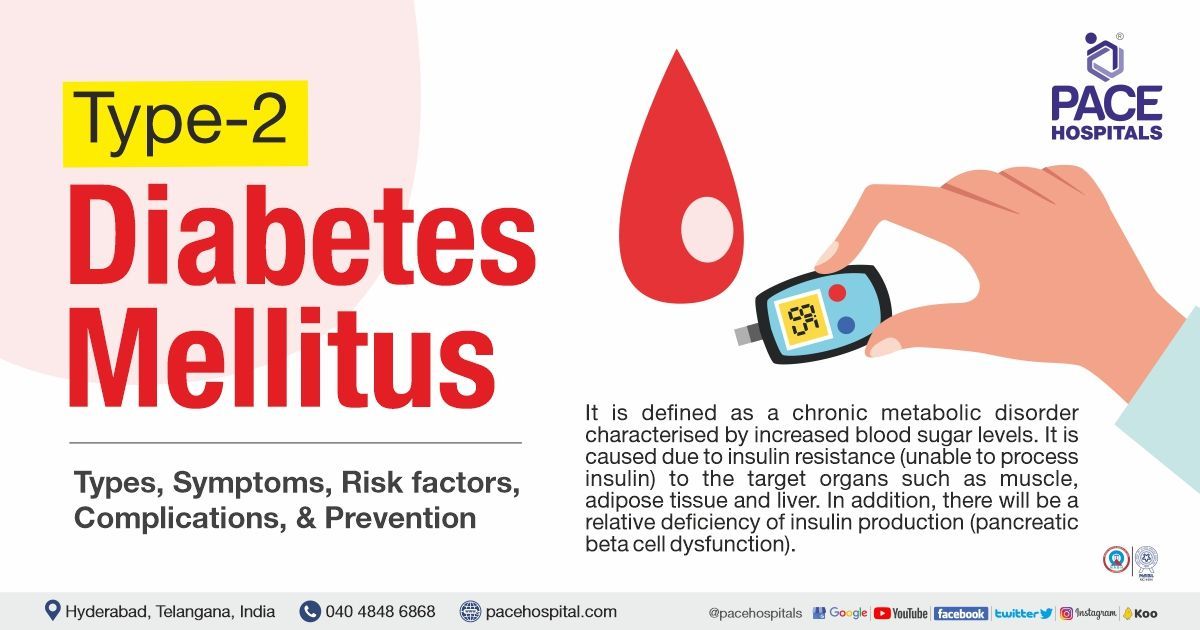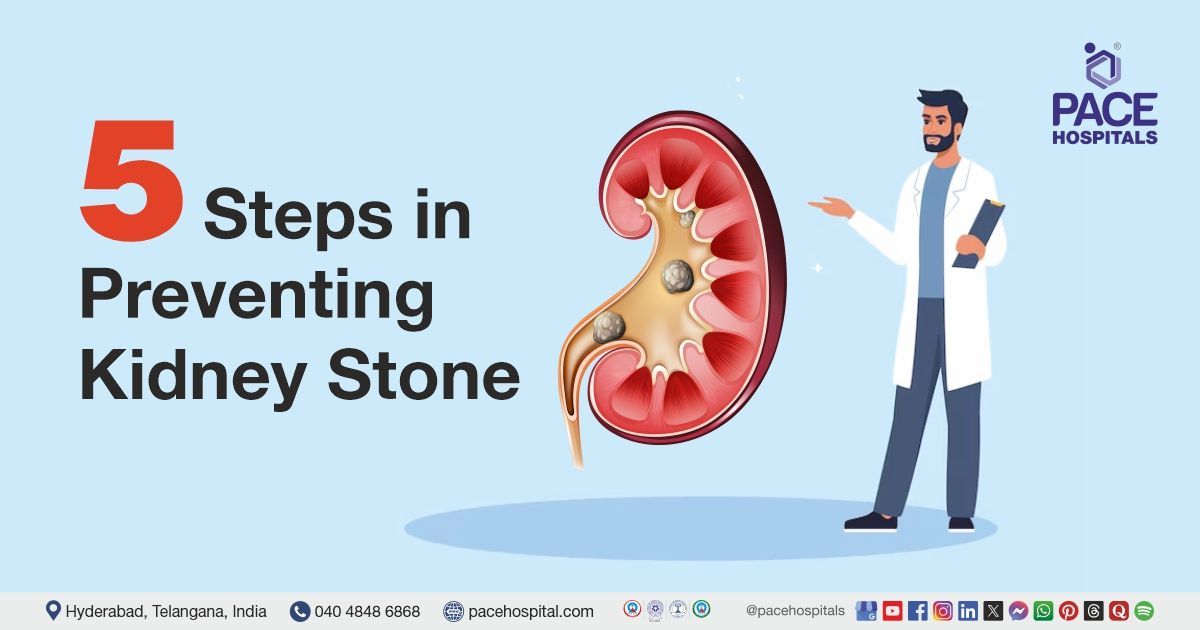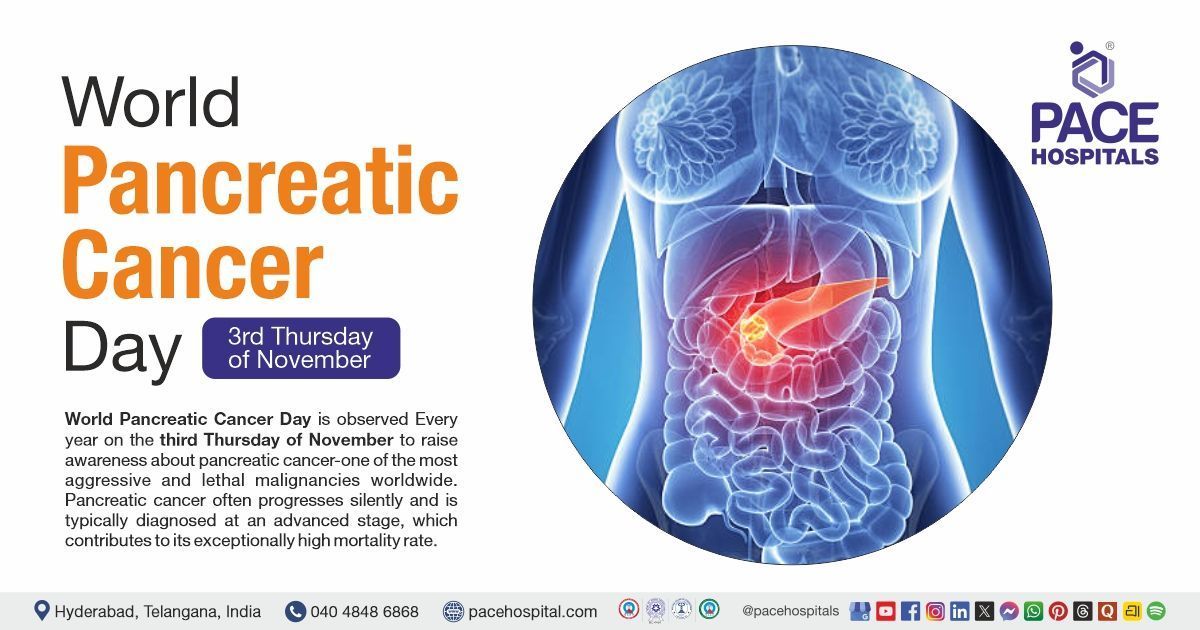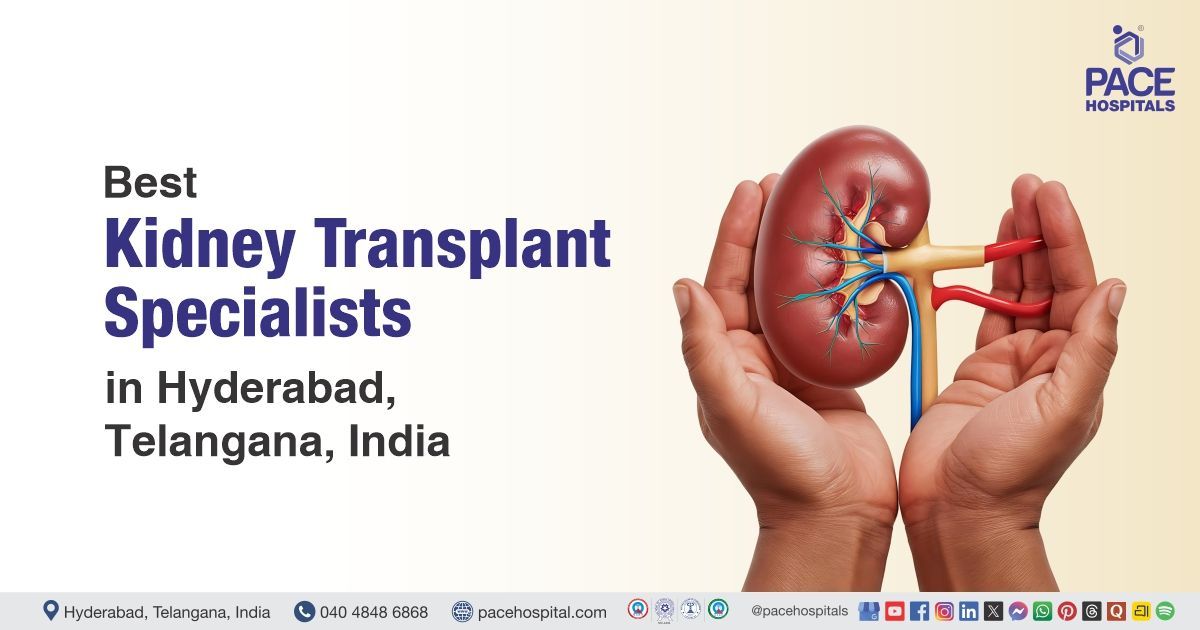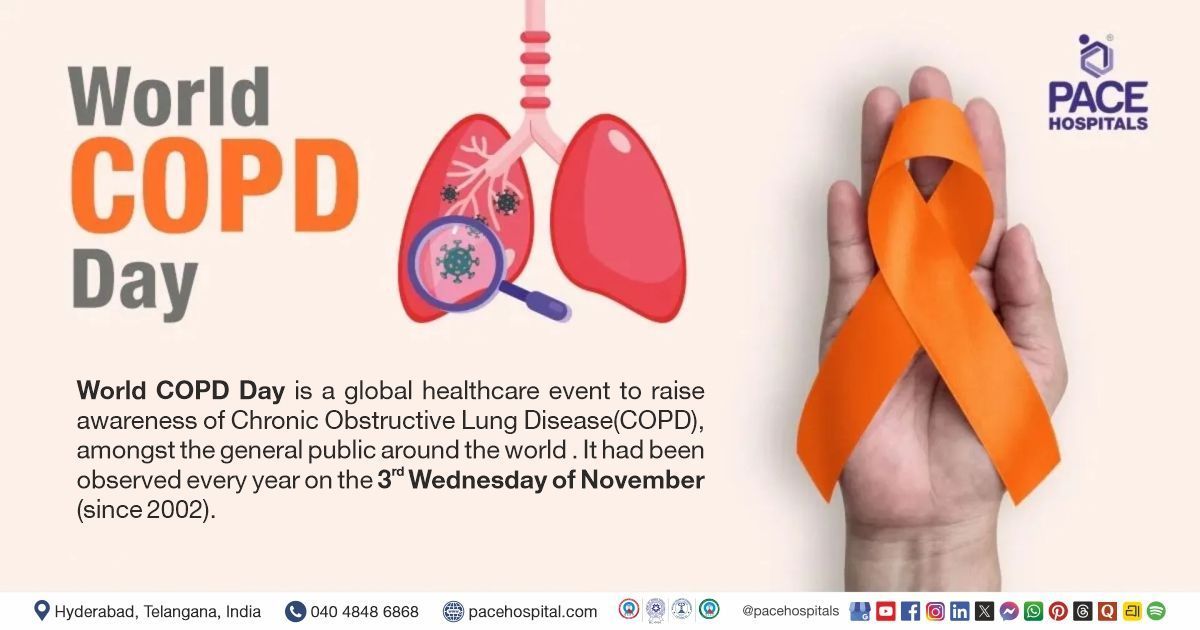Roller coaster effect (Fluctuating Sugar levels) in Diabetes
Pace Hospitals
Fluctuating Sugar levels in diabetes can lead to early diabetes complications; even if yours average HbA1c levels look good.
Attaining and maintaining normal glucose levels (Euglycemia) is the difficult task for every person with diabetes. Blood sugar levels never remains same and keeps fluctuating throughout the day like a stock market or roller coaster.
What is fluctuating blood sugar?
Fluctuating blood sugars are called Glycaemic variability. This refers to swings in blood glucose, including episodes of high sugars i.e. hyperglycaemia & low sugars i.e. Hypoglycaemia.
What are normal blood sugar levels?
We call normal blood sugar level when FBG (The fasting plasma glucose) less than < 100 mg/dl, PP (Two-Hour Postprandial Glucose) less than <140 mg/dl, HbA1C (Haemoglobin A1C) less than <5.6 mmol/L.
We call a person diabetic when FBG (The fasting plasma glucose) more than >126 mg/dl, PP (Two-Hour Postprandial Glucose) more than >200 & HbA1C (Haemoglobin A1C) more than >6.5 mmol/L.
Then what about ranges of FBG (The fasting plasma glucose) - 100 to 125 mg/dl, PP (Two-Hour Postprandial Glucose) - 140 to 200 mg/dl & HbA1C (Haemoglobin A1C) 5.7 to 6.4 mmol/L, we call these patients as Pre-Diabetes or Impaired glucose tolerance, this means they are at the entrance gate of diabetes & with lifestyle modification they can revert.
Why does blood sugar level fluctuate?
Fluctuating blood sugar levels or Brittle diabetes occur because of explained and unexplained causes, leading to increased sugar levels (Hyperglycemia) and low sugar levels (Hypoglycaemia). In spite of all possible efforts, sugar levels never seen to stay at a same level in many diabetic patients.
In non-diabetics people blood sugar levels fluctuate within normal range, factors precipitating blood sugar fluctuations are diet (quantity of food, what type of food, gap between two meals), physical activity, co-morbidities like chronic kidney disease, chronic liver disease, infections and various other conditions causes’ fluctuations in sugar levels.
These fluctuation or swings in blood sugar levels in known as glycaemia variability. When there is high glycaemic variability, it can cause microvascular and macro vascular complications.
Extreme fluctuating blood sugar levels can cause a lot of emotional disturbance like depression, agitation, feeling irritable, anxiety, lack of energy, easy fatigability, and uncontrollable temper.
Reason for fluctuating blood sugar levels
Glycaemic variability has two components - High blood sugar and Low blood sugar.
Factors precipitating high sugars are Diet, Physical activity, some infection, sleep & emotional disturbances, drugs like steroids, oral contraceptive pills & alcohol.
Low sugars are mainly seen in Elderly diabetic who is on some antidiabetic medicine & not taking diet adequately. Low sugars are also seen in severe infection, Sepsis, End Organ failure like chronic Kidney disease, chronic liver disease, cancers etc.
Few reasons that can cause blood sugar fluctuations:
- Sleep disturbances
- Emotional disturbances
- Infections like common cold
- Dehydration
- Hormonal fluctuation during periods and menopause
- Emotional or physical stress
- Oral contraceptives
- Drinks like tea, coffee, energy drinks
- Medications like steroids, diuretics & Antidepressants
- Long distance travel (change in time range)
- Excessive physical activity
- Alcohol
- Seasonal changes
- Artificial sweeteners
Other than the above causes, a lot of people suffer from unexplained swings in blood sugar levels.
- Excessive carbohydrate consumption can cause high blood sugar levels.
- Inadequate intake with respect to medication might cause hypoglycaemia.
- High intake of unhealthy carbohydrate is the main cause for uncontrolled blood sugar in people with diabetes.
Symptoms of fluctuating sugar levels
These are some common symptoms that may indicate fluctuation in blood sugar levels. The symptoms of high blood sugar levels:
- Increased thirst
- Extreme hunger
- Increased urination
- Irritability - feelings of anger or frustration
- Dry skin
The symptoms of low blood sugar levels:
- Sweating
- Dizziness, light-headed or unbalanced
- Extreme weakness
- Anxiety
- Involuntary trembling hands or tremors
- Severe headaches
- Sleeping difficulty
- Changes in vision, such as double vision or blurred vision
- Sometimes loss of consciousness & even coma
How to control fluctuating blood sugar levels?
Diet and lifestyle modifications can help in maintaining blood sugar levels and control fluctuating blood sugar levels. Diet is one of the main reason which can be regulated properly to maintain blood sugar levels. It has 3 macro nutrients carbohydrates fats and proteins, carbohydrates plays a major role in regulating blood sugars.
Carbohydrates are 2 types, 1. Simple carbohydrates 2. Complex carbohydrates
Simple carbohydrates are sucrose, fructose, lactose & Galactose found in fruits and milk products and give immediate energy bursts. Simple carbohydrates are also seen in junk foods, cold drinks, chocolate & sweets. These are processed and refined sugars without minerals and vitamins, leading to high sugars.
Complex carbohydrates contain more than one sugar found in vegetables, whole grains, beans and peas. They contain minerals, vitamins and fibre. People with diabetes should increase complex carbohydrates in the diet.
Carbohydrate estimation should be done with the help of dietician or diabetes educator.
Other techniques to manage blood sugar fluctuation or variation by adequate sleep, decrease stress levels, reduce weight, medications to be taken regularly to be discussed with your doctor, reducing intake of caffeine.
Insulin dependent patients need to be educated about site rotation, technique of insulin administration. Improper technique, no proper site rotation can cause sugar fluctuation.
Fluctuating Sugar Levels in diabetes
Fluctuating Sugar Levels in diabetes can lead to early diabetes complications; even if yours average HbA1c levels look good.
For example two persons A & B has HbA1c of 7.0.
- Person A : Blood sugar fluctuation are between 30 to 180
- Person B : Blood sugar fluctuation are between 110 to 160
Even if HbA1c of A & B are 7.0 A has more early diabetic complication than B.
Your blood sugars are affected by a large number of things including what you ate (especially refined white carbohydrates), how long ago you ate, your starting blood glucose level, physical activity, mental stress, illness, sleep patient and more.
If you take insulin and use it to treat highs, you can easily end up over compensating and developing low blood sugar, if you develop a low, it’s easy to overeat and end up high again.
Large fluctuation in blood sugars may make you feel cruddy and are bad for your long term health, so it’s time to learn how to stop the Roller coaster.
Treatment for blood sugar level fluctuations / brittle diabetes
Controlling your blood sugar levels is the primary way to manage the condition. It requires careful management and regular monitoring of the blood sugar levels and treating the conditions such as kidney diseases, pancreas diseases, thyroid and adrenal diseases that are causing fluctuation. Based on the cause, diet and lifestyle modifications with that medication or surgical intervention will help if treating the brittle diabetes.
Blood sugar level fluctuations can lead to neurological disorders, thyroid diseases, kidney diseases and obesity. Managing it at early stage can prevent future complications and diabetic coma.
It is to be noted that people have persistent and unexplained hypoglycaemia should consult diabetologist for further evaluation.
What is the normal levels of blood sugar fluctuation in a healthy person?
In most people blood sugar levels varies from about 82 mg/dl to 110 mg/dl. The blood sugar level rises to nearly 140 mg/dl or a bit more after a full meal. In human normal blood glucose levels are around 90 mg/dl.
What is the mechanism of blood sugar control in our body?
We have a natural hormonal homeostasis of blood sugar control. We maintain a normal sugar, say 80 mg/dl constantly in our blood stream.
Suppose we take a meal, then blood sugar level increases. A sensor in a blood vessel signals the pancreas to secrete insulin. Now the job of insulin is to shift this extra glucose inside tissue & stores in the form of glycogen. The counter regulatory hormone to insulin is Glucagon, Growth hormone, cortisol, & epinephrine. These causes blood sugars to increase. In diabetic, insulin secretion decreases so the counter regularly hormones rises, leading to high blood sugar.
Who all are having more blood sugar fluctuations?
Blood sugar fluctuation is more in people with Diabetes Mellitus & also in people with impaired blood sugar regulation.
Is fluctuating blood sugar dangerous?
Definitely yes. Fluctuating blood Sugar has Roller Coaster effect on Patient of Diabetes Both
- Microvascular i.e. Diabetic Nephropathy, Retinopathy & Neuropathy as well
- Macro vascular complication i.e. Cerebrovascular disease, Cardiovascular disease and Peripheral vascular disease appears early & tend to be more severe in diabetic patient with fluctuating blood sugars.
How to monitor fluctuating blood sugar?
There is no Gold Standard in measurement of Glycaemic Variability.
- Random Blood sugar, FBS, PPBs gives one time value, it does not give information about 24 hours variation of blood sugar.
- Glycated HB levels tells about mean blood glucose. HB glycation is regulated by fasting blood glucose & it does not give value for post prandial rise or Hypoglycaemia.
- Self monitoring of blood Glucose (SMBG) takes pre- & post-value of all three meal and also gives midnight value, so 7 values gives better idea of blood sugar fluctuation.
- Most innovative is CONTINUOUS GLUCOSE MONITORING. It gives value for Ambulatory Glucose Monitoring in which a small sensor is attached in the body which takes around 100 values for 14 days. The Reader detects the value 7 even plot the graph, so we can find blood sugar during 24 hours, what we call Time In range (TIR).
- Glycated Albumin & 1,5-Anhydro-D-glucitol are promising serum Marker which are coming up.
How to control fluctuating sugar level?
Lifestyle modification has two component - Diet control & Physical activity.
In diet, you have to reduce carbs i.e. low calorie - reduce rice, sweet, junk food, chocolate, cold drinks, alcohol & increase fibres as green vegetable, sprouts, salads etc.
Daily physical activity means 30 - 45 mts/day, 5 days/week helps to control your sugars. This leads to more insulin release from pancreas & also insulin resistance is reduced. Low sugar can be prevented by proper medication, overdose reduction. Do not skip meal when taking antidiabetic medication.
In some patient these blood sugar fluctuations are more in spite of all method of prevention, what we call as Brittle Diabetes.
- Closed loop insulin infusion: this is an advice which detects changing level of blood sugar & infuse insulin accordingly
- Bihormonal infusion: this device delivers both insulin & glucagon & controls both hyperglycaemia & hypoglycaemia.
Why is Fluctuation of blood sugar more during pregnancy ?
Pregnancy is predisposed to diabetes, what we call as Gestational diabetes mellitus. In pregnancy, there is increased demand of glucose as the mother carries the Foetus. Also, there is weight gain during pregnancy & your body cells use insulin less effectively, what we call as Insulin resistance. Fluctuation of blood sugar is more seen in Elderly pregnant women, family history of Diabetes, Overweight female etc.
What are the hazards on foetus of blood sugar fluctuation in mother?
Fetal malformation, congenital defects, miscarriage, large fetus are more frequent with glycaemic variability in mother.
Take Home Message:
- Glycaemic variability is future target parameter for optimum glycaemic control over & above Standard parameter as FBS, PPBS, HbA1C.
- Drugs which correct hyperglycaemia without inducing Hypoglycaemia has better Glycaemic Variability.
Request an appointment in case of having blood sugar level fluctuations / brittle diabetes
Appointment for blood sugar level fluctuations
Related Articles
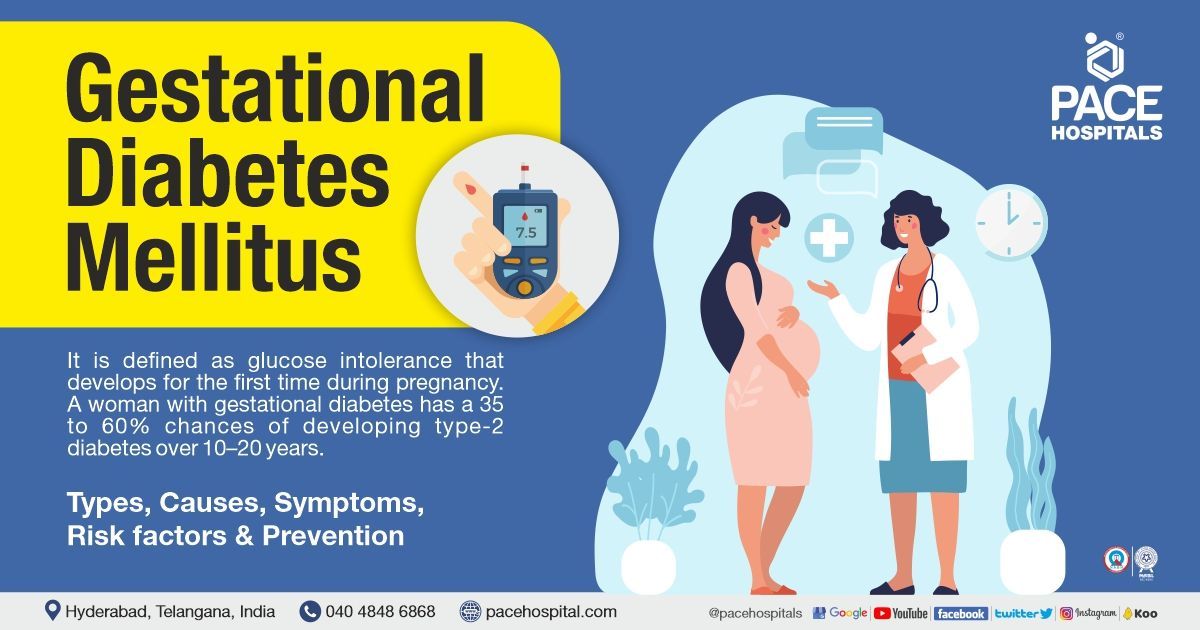
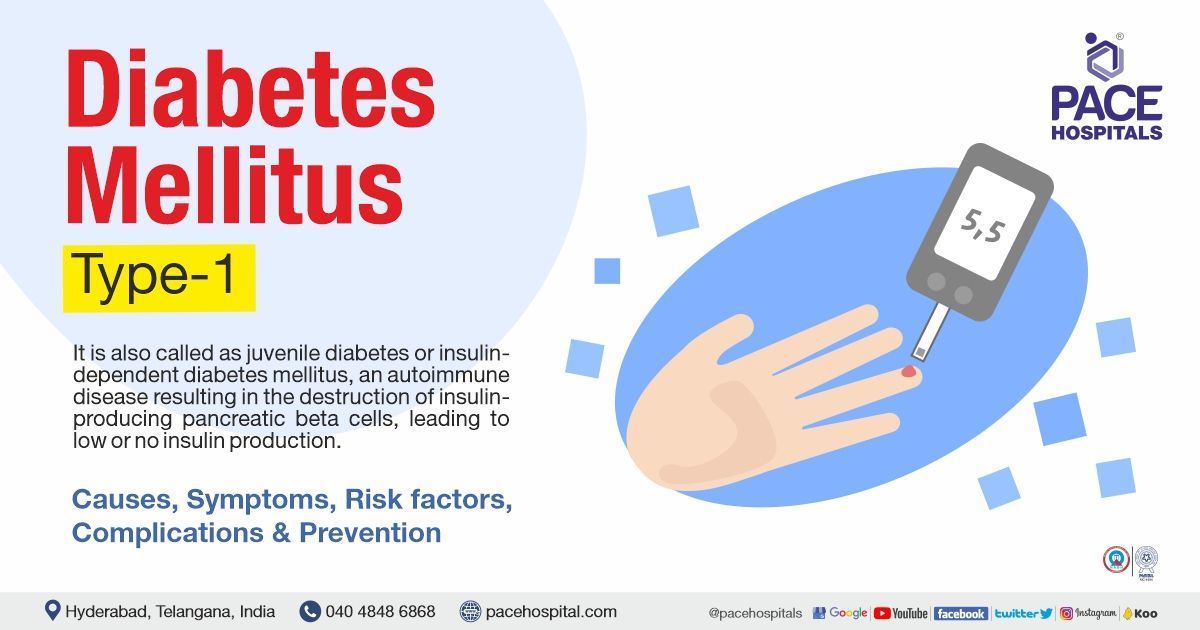
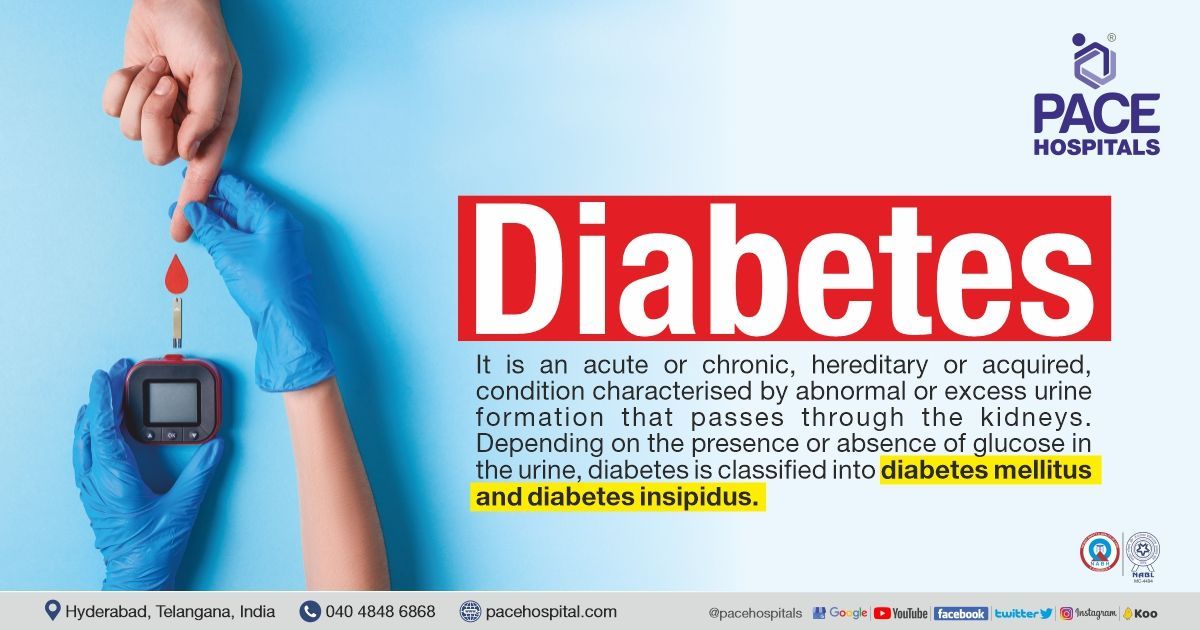
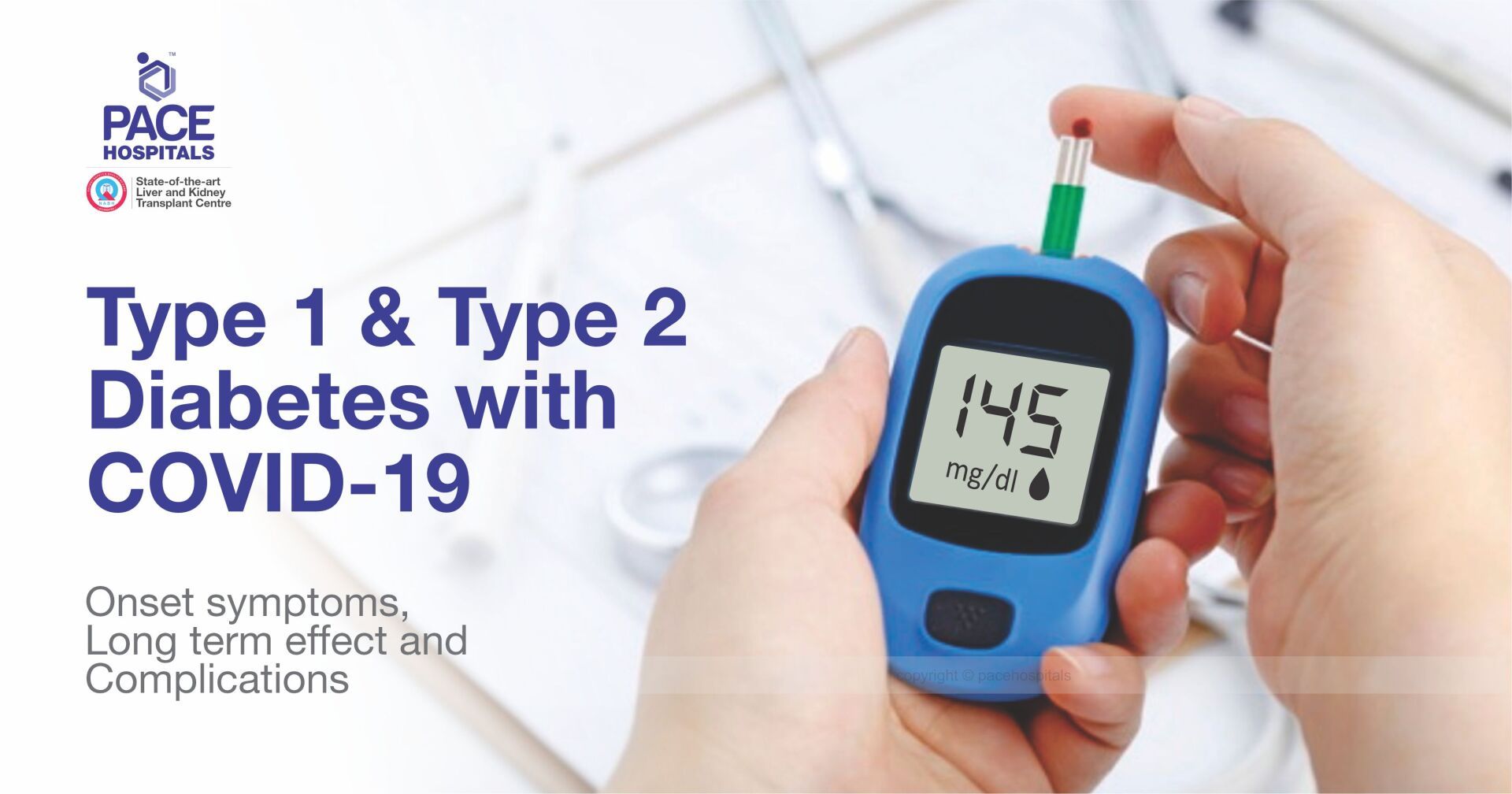
Share on
Request an appointment
Fill in the appointment form or call us instantly to book a confirmed appointment with our super specialist at 04048486868

